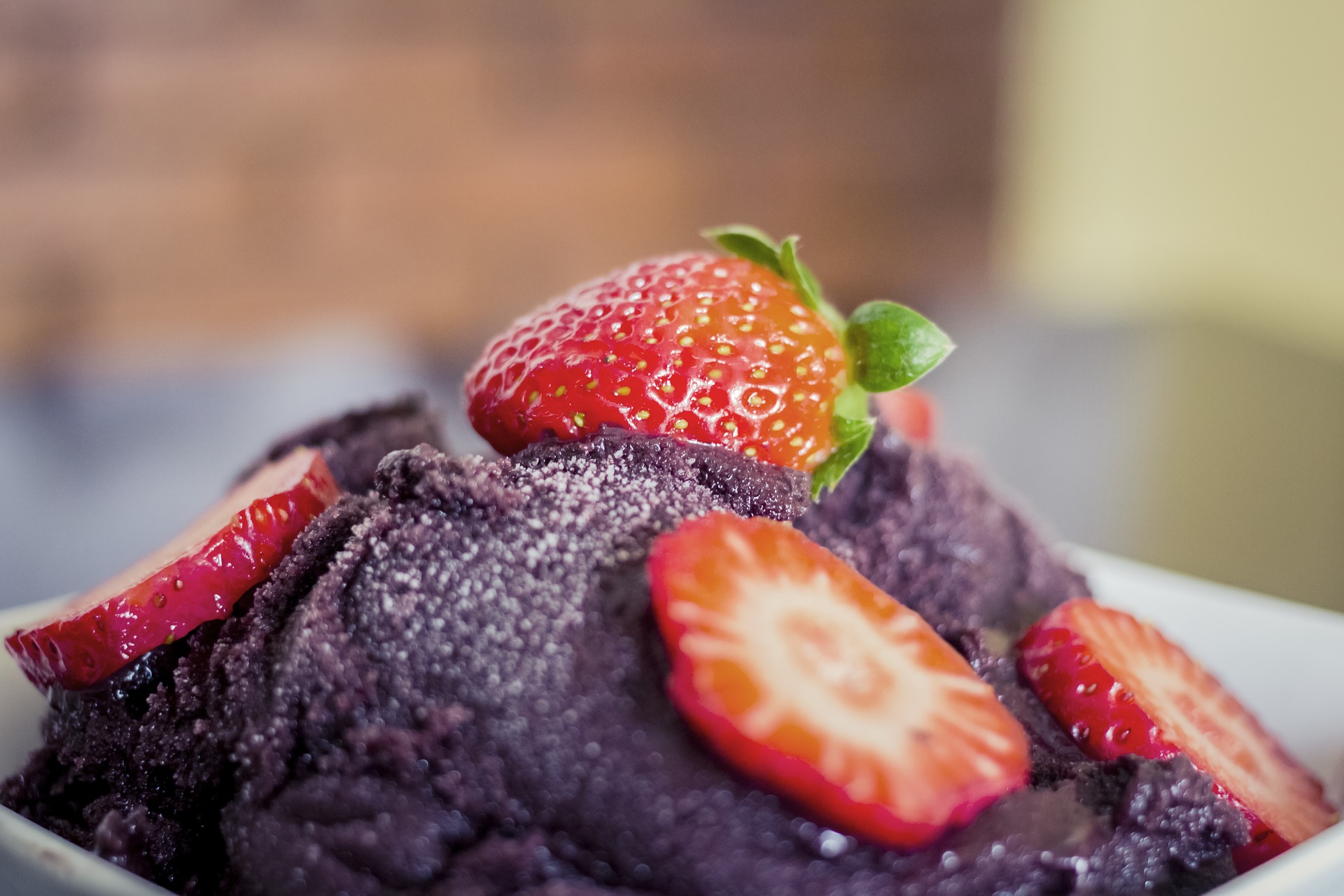As many of you probably know, acai is a dark purple berry native to South America. Acai berries are rich in antioxidants known as anthocyanins, the same antioxidants found in blueberries.
However, acai berries are nearly 10 times higher in antioxidants than blueberries.
Acai berries are sold in the United States in several forms. The healthiest forms are freeze-dried powder and unsweetened purée packs, which contain the whole berry (the best option).
Juices containing acai may be pasteurized and sit on shelves for days, months, or even years before consumption. It is therefore difficult to tell how nutritious these juices are.
It’s always best to consume foods in their whole state whenever possible. However, freeze-dried acai powder still provides great benefits and many of the nutrients remain intact.
Here are some of the many attributes of acai berries:
Low in sugar
Acai is one of the most diabetic-friendly fruits of all. Per serving it contains very little sugar, three grams of fiber (the same as a banana or a small apple), and six grams of healthy fats, which are mostly all omega-3 fatty acids.
Since acai is low in sugar, it is incredibly easy to digest and wonderful for blood sugar balance.
Brain food
The acai berry’s unique fat composition makes it an amazing brain food. It is high in oleic acid, one of the most well-known types of omega-3 fatty acids.
Oleic acid has anti-inflammatory benefits for the brain and heart. This omega-3 fat also supports neurotransmitter function, and when consumed in place of refined carbohydrates and high-sugar foods, it can assist with memory and focus while also reducing brain fog associated with blood sugar imbalance and low fat intake.
Digestive health
Another great reason to eat acai berries is their benefit to digestion. Acai berries can help promote regularity due to their fatty acid and fiber content, as well as their low sugar content.
High-sugar foods can be irritating to the bowel and can cause an overgrowth of bad bacteria in the colon. Individuals who are sensitive to FODMAPS (fermentable carbohydrates found in a variety of plant foods like blueberries, onions and garlic) may find that berries cause digestive upset, such as gas and bloating.
Acai berries are a great option since they contain no FODMAPS and provide anti-inflammatory benefits to the colon and digestive tract.
Satiety
The whole acai fruit purée, which you can find in the frozen sections of health food stores, is a great fruit to aid in satiety. Add a whole pack of the fruit to a smoothie and you’ve got a great filling option with tons of nutrition.
One pack provides 80 calories, six grams of heart-healthy monounsaturated fats (most of which are omega-3 fats), fiber, and even three grams of protein! This is a great option to add to a smoothie in place of a banana or other fruits if you’d like to reduce your sugar consumption and get as much nutrition as possible.
Or, you can make an acai bowl by blending the fruit with some coconut or regular yogurt, some stevia or a little honey (or a banana), hemp protein and some pumpkin seeds for a delicious high-protein breakfast!
Anti-aging skin benefits
After using acai for several weeks — in combination with a healthy, whole foods diet — you’ll likely notice improved skin health. Acai is rich in antioxidants that fight aging and free radicals, even more so than blueberries.
It also reduces inflammatory markers in the body that can lead to aging. The healthy fats in acai will improve skin luminosity and overall collagen production.
Best of all, acai berries taste great!
Acai berries taste like chocolate and blueberries mixed together, even though they are not sweet. This makes them a great option to eat every day (if you have access to them) because they satisfy your tastebuds without any negative side effects.
Although the fruit is not sweet, when mixed into a smoothie or an acai bowl, it transforms into a delicious treat. Acai has a fruity taste much like wine — it has an incredible depth and is satisfying to the palate. It pairs well with cacao, maca, hemp, goji, maqui, and spirulina in a smoothie.
Are acai berries better than other berries?
Many people wonder if acai berries are better than blueberries, raspberries, strawberries, or blackberries. And the truth is, all berries are great for you. Don’t try to pick one over the other, but instead pick the ones that you digest well and that taste the best to you.
Many people love strawberries, but they can trigger allergic reactions in others. Blackberries are a great source of fiber, yet some people with digestive issues may find they contain a bit too much roughage for their system, making strawberries a better option.
For those on a low-sugar diet, raspberries, strawberries and blackberries are the lowest in sugar. Super berries like acai, goji, and camu camu berries also have their place, depending on your health needs, desires and goals.
If you’re looking for a healthy, satisfying berry that delivers the most antioxidants with very little sugar, acai is your go-to berry! Give it a try by purchasing organic, non-GMO brands of unsweetened acai berry purée. If you can’t find this form, try the freeze-dried organic powder as the next best option.
Avoid sugar-sweetened and shelf-stable acai juices, as well as diet products made with acai, which likely don’t deliver any of the benefits of real acai.


